Social Security and Pension Systems in Europe
Poland deep dive part 2 + Italy, France, Germany, Switzerland, Spain, Czechia
EDIT: here you find a deep-dive on Switzerland social security
Last week I published an article on ZUS - Poland social security system.
I praised it for its relatively low cost and high returns (in the form of forecasted pension).
TL;DR of that article:
As a self-employed individual you pay about 4500 eur/year in social security
About 60% of it goes into your pension contributions
Those contributions grow at the same rate of the average Polish wage - which, for the next 30 years, is expected to grow at ~4% per year
Once you get the pension paid out, you’ll capitalise on this “investment”
If you live as long as the average person in Poland, you’ll capitalise on about 3% yearly growth to the money you paid in your contribution; if you leave a bit more, it’s gonna be about 4%
This means that the Polish pension system kinda pays like US treasuries in 2025, which is a lot
Basically:
low contributions
that grow well
safe
The problems
I mentioned Poland having some issues like low fertility rate (about 1.3 - meaning on avg a woman has 1.3 kids) and an aging population.
I said how this will be IMO counter-balanced by a growing economy (attractive to skilled migrants in working age) + over 1M of young Ukrainians who moved to the country after the war.
Am I optimistic?
Someone reached out to me saying this:
And sent me this:
The truth
It’s not great!
These problems are real.
But
If the Ukrainians stay, it’ll provide a significant offset
Moreover, Ukrainians tend to be more traditional and family-oriented (although that’s partially changing), and many of the migrants are women. Also, it’s true that some of the ones who moved to PL thus far might go away, but it’s also true that many more might come in the future.
So maybe the 5+ years offset mentioned above is slightly pessimistic (could be bigger).
Poland in 2025 attracts many high-earning family-oriented remote workers
People who are tired of culturally ultra-liberal, laissez faire, unsafe and often high tax “Western Countries”, find in places like Poland or Czechia a very good match.
These types of immigrants are often more likely to start families:
They want it
They can afford it
I don’t have data on this, so this is just a guess.
Pension formula vs low fertility
Technically, the formula is as I’ve described it in the previous article.
(and briefly mentioned at the beginning of this one)
The question is more about if this formula is sustainable for the coming decades.
I don’t think it will change drastically.
It will change for sure, at some point. But how?
Poland pension system is running a deficit
But so is everyone else
And if you look at the GDP, the amount Poland pays in pension is still quite reasonable.
Meaning that it likely can afford it, it might just have to increase contributions a bit.
Btw, for context:
There’s no big rush
Poland debt is still very much under control
(Not sure what’s up with the interest rates in Poland and why they’re so high - but I once heard that this might get better in the future)
Retirement age
In Poland it is still quite low compared to other European countries:
60 for women
65 for men
Not sure why the one for women is so low.
I guess moving both of them to ages similar to other European countries (let’s say both of them at 66/67) will also go a long way in addressing the pension system issues.
What will Poland likely do
In the end the fact that 3% of Poland GDP is for subsidising the pension is not good, and something will need to be done about it, especially as the trend for the population growth is not the best.
There’s several levers it can act on:
Retirement age
Issuing more debt
Use general tax revenue / cut elsewhere
Increasing contributions
It has a lot of room for these maneuvers, since the debt isn’t too high, retirement age isn’t high (especially for women), taxes and socials security contributions are quite low, etc.
The competition
In Europe, other countries aren’t gonna face different, more optimistic trends
Basically, countries in Western and Southern Europe TODAY have worse pension systems than Poland, and they’ll likely get worse at a worse rate than Poland’s pension system will get worse.
To make it more simple:
Let’s say Poland ZUS today is a 8/10
Maybe in 30 years will be a 6.5/10 or 7/10
Western Europe’s pension systems today are a 6+/10
In 30 years they’ll likely be a 4/10
Moreover, you can see how pension systems is correlated with immigration
Western Europe has already reached a point where mass and uncontrolled immigration has significantly disrupted society’s cohesion, and each Western European country has now voted politicians to interrupt this immigration trend.
Meaning, they can’t afford to let in too many more migrants.
Poland, on the other hand, has done a lot better on immigration
Focused on easier to integrate and legal migrants.
It’s still a very safe and cohesive country (similar to Switzerland - if not more, from my experience).
Meaning they have a lot more room to increase their migrant quotas, which they’ll likely do in skillful and controlled ways.
What do you think?
Do you know of any other country doing well here?
Any of these - Czechia, Estonia, Croatia?
I’m preparing an article on Switzerland social security and pension system - stay tuned!
This article is brought to you by:
Euro Top Tech Jobs - The #1 resource for landing Top-Paying Tech roles in Europe:
4000+ top paying tech jobs in Europe from big tech companies, HFT firms and high-paying scale-ups.
Hundreds of jobs from 100+ fully-remote companies paying $100-600k per year.
Private guides - like this one - to help you land these jobs.
Six Figure Euro Engineer - Maximise your chances to boost your Tech Career in Europe, reducing time to success:
Work 1:1 with me (Nicola Amadio, author of this newsletter), and join the other engineers who were able to 10x their tech career in the past few months!



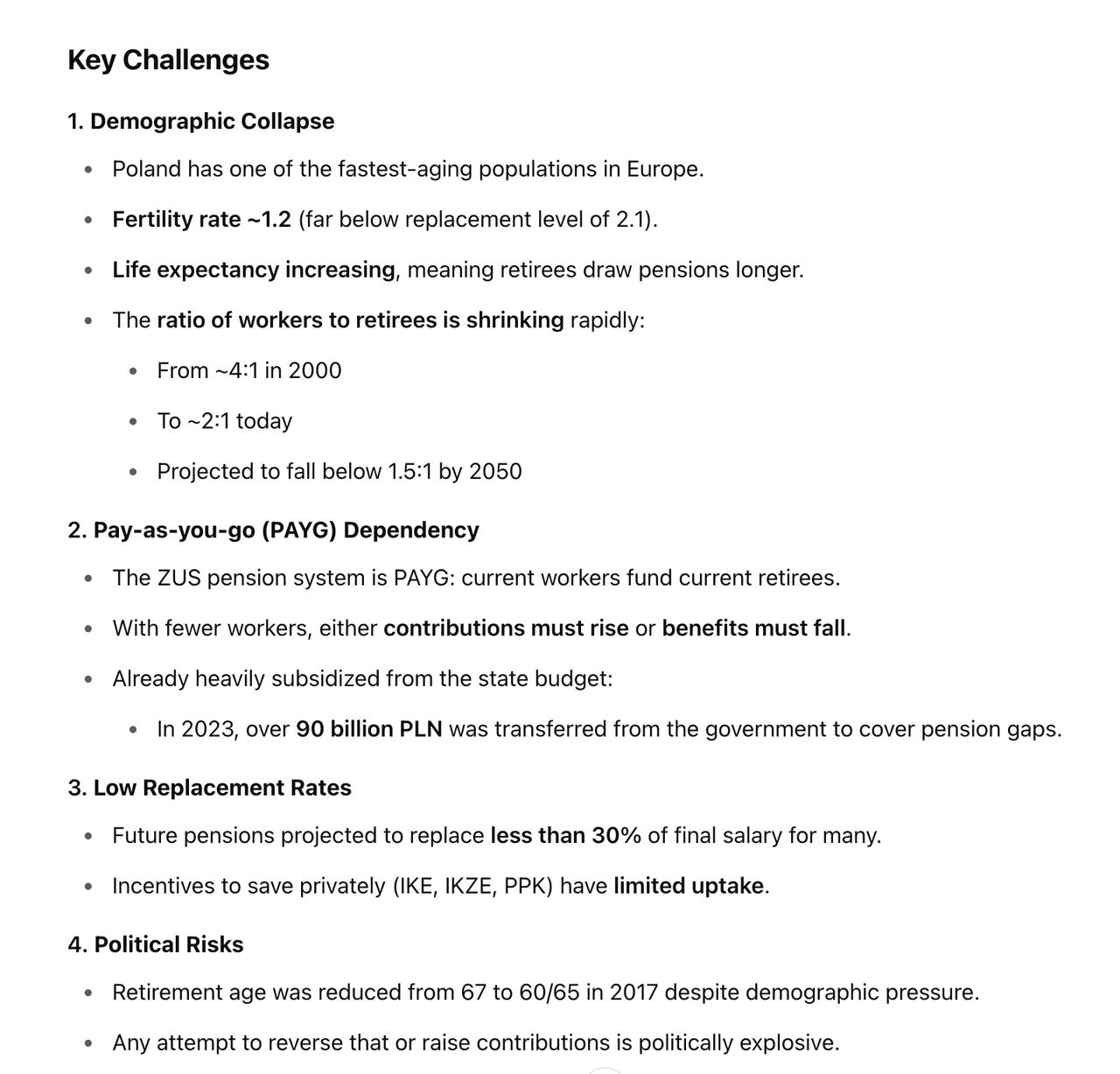
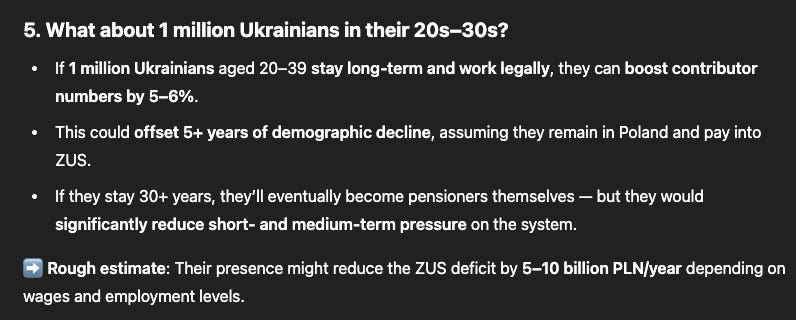
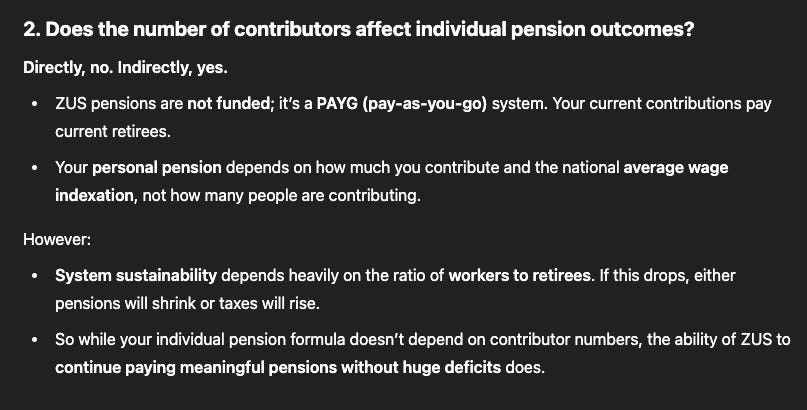
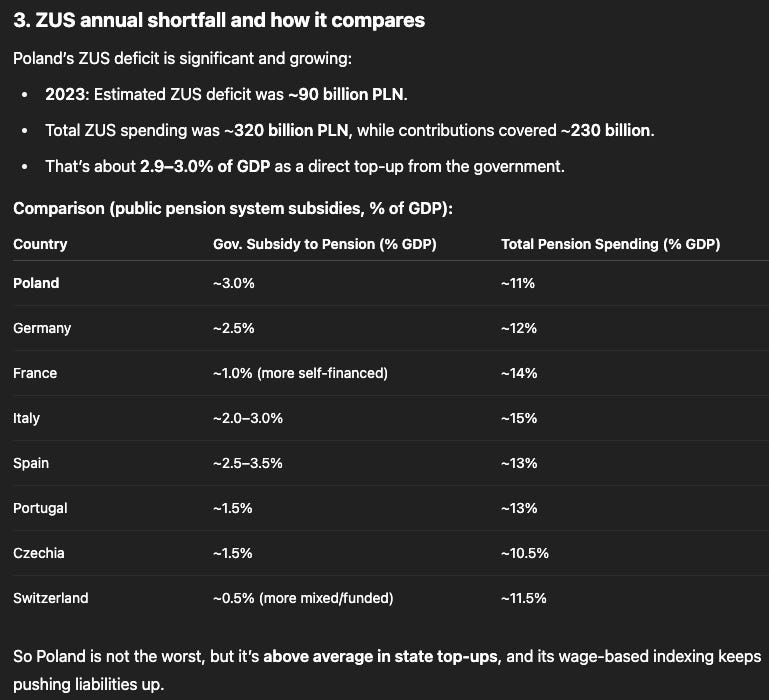
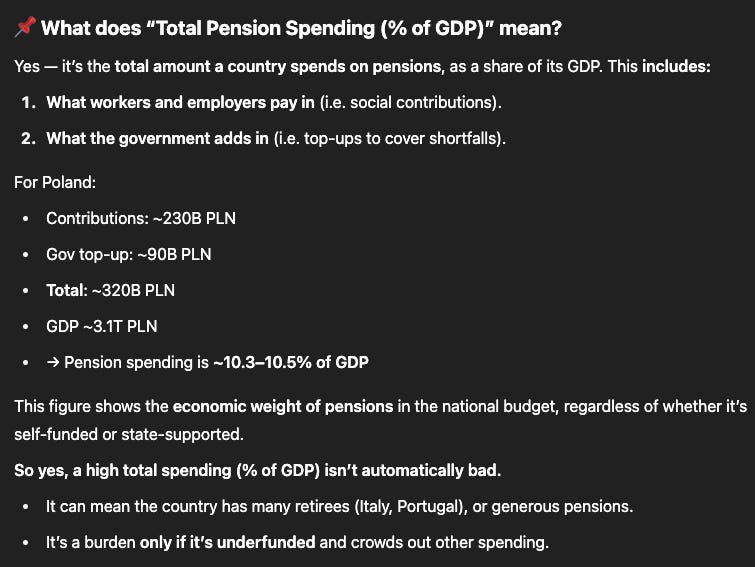
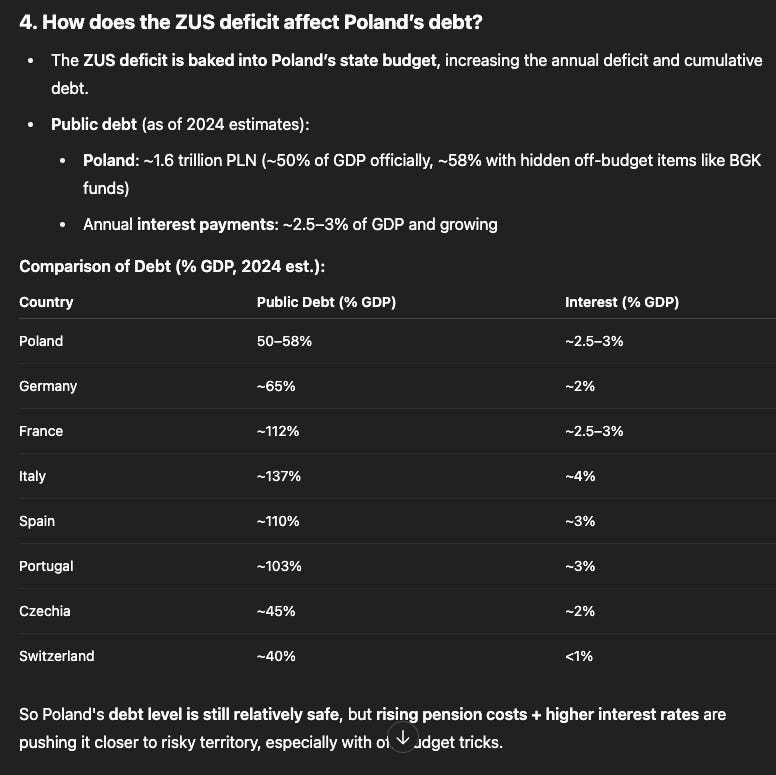
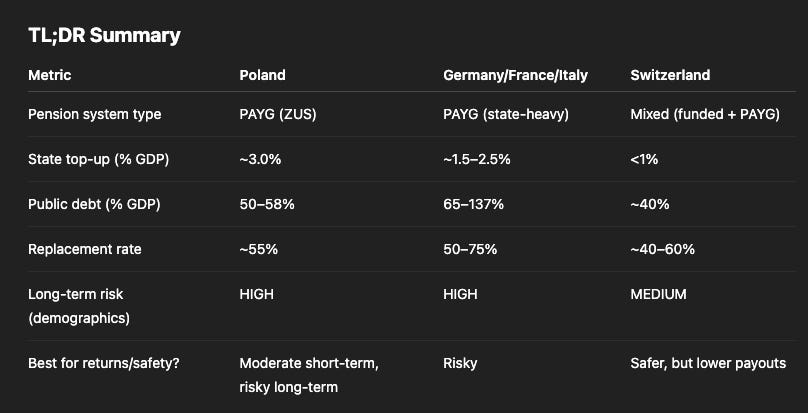

thank for sharing.
i think you're optimistic when you're hoping remote-workers have more than 2.1 kids.
remote work is easy when you're young and alone.
as the idiom says "it takes a village to raise a child". it is much harder to form deep enough ties when you're remote-working. alos, it is much harder to find a grandmother to babysit when both partners want to go for a date in the first year/ two of their child.
about PAYG:
paying for someone who invested before you has a different name too. ponzi-scheme :)
this should stop ASAP - when it is manageable.
you tell people - you must contribute those 60% to some fund - but you'll only be able to pull what you've paid in. 30-40 years of contributions invested and compounded - should create a good nest egg. probably good enough for 20-30 years of retirement.
this way someone who enters the workforce now - knows his funds are safe, regardless birth rate - or efficiency of the pension scheme.
the debt government is taking - should only cover past generations. this is a big number - but at least it is not infinite.